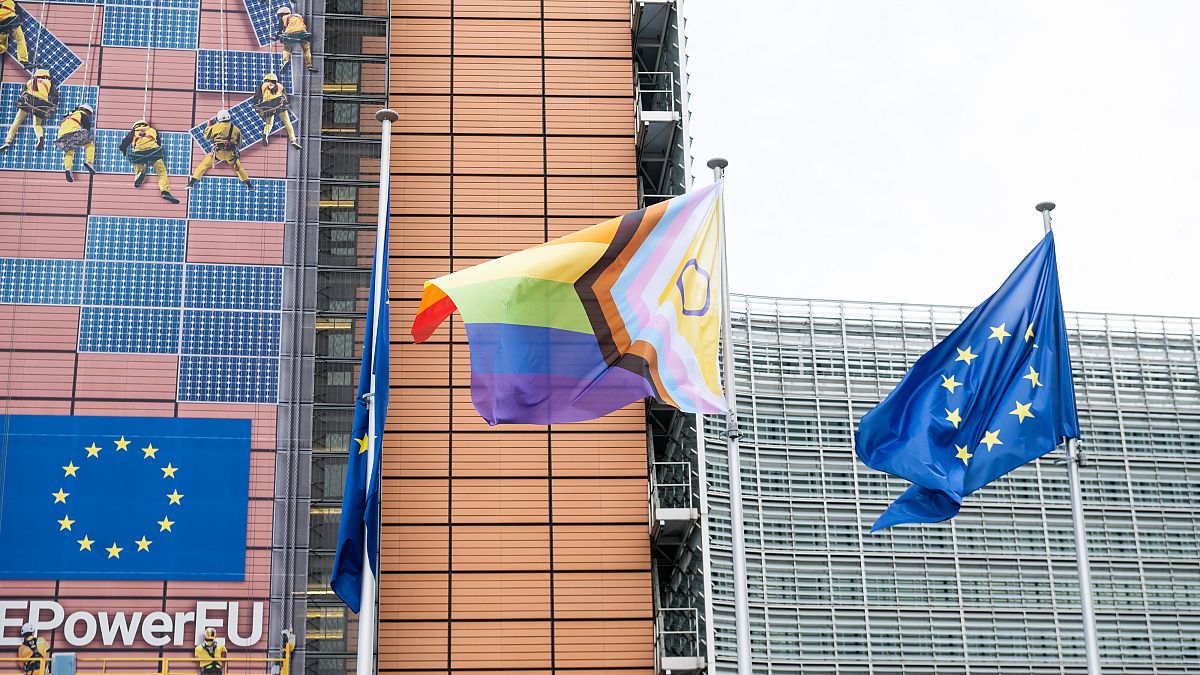Ursula von der Leyen’s decision to not have a dedicated Equality Commissioner in her second mandate has sparked outrage among MEPs, NGOs, and civil society organizations who fear that rights for women, migrants, people with disabilities, and other minorities could be downgraded. The decision to give the equality brief to Belgian liberal Hadja Lahbib alongside a crisis management role has been criticized as a rollback compared to the last mandate. MEPs and advocates are concerned that with the rise of the far-right in Europe, stronger action is needed to protect the rights of marginalized groups.
Despite the unconventional portfolio of Lahbib, which includes crisis management and equality issues like gender equality, racism, and LGBTQI rights, advocates are still worried that equality may be sidelined in the new Commission. The European Women’s Lobby has called the treatment of equality as an afterthought unacceptable, especially given the setbacks women’s rights and equality are experiencing across the EU. Lahbib herself has expressed her commitment to fighting discrimination and ensuring that every European can live freely, emphasizing her focus on gender, origin, beliefs, disability, and social status.
One of the challenges for the next Equality Commissioner will be to consider outlawing conversion therapy, interventions aimed at changing sexual orientation, gender identity, or gender expression among gay, transgender, or queer people. While several EU countries have already introduced nationwide bans on conversion therapy, a petition calling for a legally binding EU-wide ban has been registered with the Commission. Advocates hope that the European Commission will prioritize banning these harmful practices committed against LGBTQI+ EU citizens, as conversion therapy remains a widespread issue across the continent.
The explicit commitment of the new Commission to protect the rights of the LGBTQI community has been welcomed by gay and transgender rights association ILGA-Europe. With the increasing anti-LGBTQI instrumentalization in politics, the need to safeguard the rights of LGBTQI individuals has become more crucial than ever. ILGA-Europe’s Executive Director emphasized that LGBTQI people form an integral part of the European fabric and democracy, and their rights must be upheld and protected. The push for a ban on conversion therapy at the EU level reflects a broader commitment to ensuring equality and inclusivity for all individuals across the European Union.
The decision not to have a dedicated Equality Commissioner has raised concerns about potential setbacks in the progress made towards protecting the rights of marginalized groups in the EU. MEPs, advocates, and civil society organizations have expressed their outrage at what they perceive as a downgrade in the prioritization of equality issues in the new Commission. Despite the additional responsibilities given to Lahbib, the lack of a specific focus on equality has prompted fears that crucial issues related to gender equality, racism, and LGBTQI rights may be sidelined or overlooked in the decision-making process.
As calls for a EU-wide ban on conversion therapy gain momentum, the importance of protecting the rights of LGBTQI individuals and other marginalized groups becomes increasingly apparent. The commitment of the new Commission to address these challenges and uphold the principles of equality and inclusivity is crucial in the current political climate. Advocates continue to push for stronger measures to safeguard the rights of women, migrants, people with disabilities, and other minorities, emphasizing the need for proactive and decisive action to combat discrimination and ensure equal rights for all individuals in the European Union.











